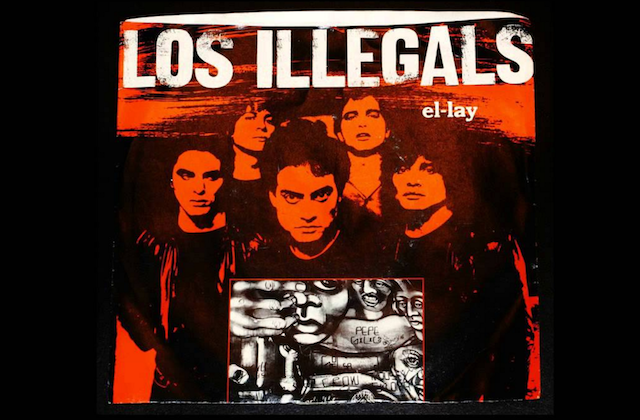In the time-honored punk tradition, Los Illegals picked its band name in part as a big middle finger to the xenophobic bias plaguing Chicanos in East Los Angeles. As the historic band’s bassist Jesus Velo explained in a new interview, the group’s name pissed off many Latinos—but not for the obvious reasons.
"So Los Illegals are [hybrid]–’Los’ [in Spanish] and ‘Illegals’ in English, which the Mexicans gave us shit for," Velo told Remezcla. "’What’s with this? You don’t like saying it all in Spanish.’ It was like, give us like a fucking break!"
Velo spoke at length to Remezcla, offering criticism of Latino artists and activists who shy away from the brazen confrontationalism that the punk band embraced in its late-’70s/early-’80s heyday.
"They’re going to play sweet songs and loving songs, and great little solos, and not really make a point," said Velo about groups that he feels compromise true confrontational spirit for popularity, including Las Cafeteras. "And of course, they’re all going to get Grammys for it. And therein lies the problem."
The article elaborates on this point:
Velo is getting at the role that the audience plays in shaping culture, and the role of the artist. Who drives cultural shifts? He believes in challenging the idea that the only ways to be financially successful as musicians are to perform for the white gaze or recycle music that makes Latinos "comfortable." He dismisses the idea that Latino musicians need to conform to what a Latino "should sound like." Instead, he makes music that confronts stereotypes.
Velo went on to describe his band’s turn to punk rock as a natural reflection of life in East Los Angeles:
And punk came not because we wanted to be like the Sex Pistols, not because we like Siouxsie and the Banshees, but it came because we lived in the real world of punk. We didn’t go home to our bedrooms after playing punk shows and jumping up and down and spitting beer at each other. We came home to the barrio and you heard gunshots.
Read the full interview here.
